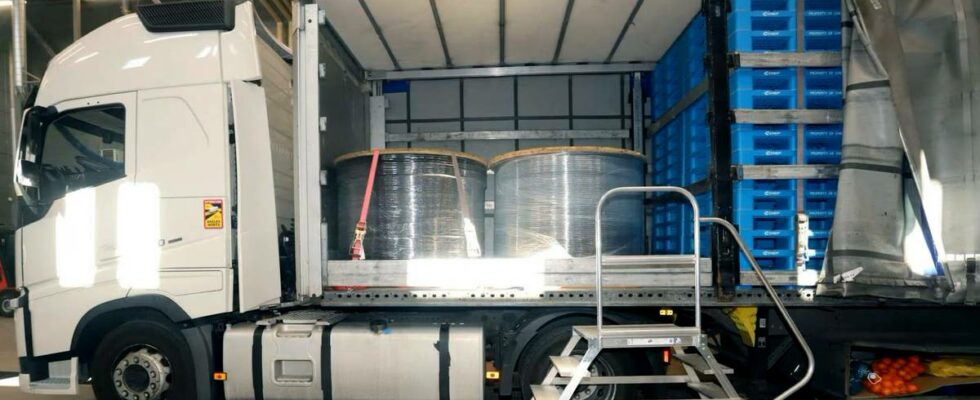The case in summary: Two men have been sentenced to 15 years in prison for smuggling 117.7 kilograms of amphetamine, 3 kilograms of cocaine and 156.5 kilograms of hashish across Svinesund in April 2023. The drugs were hidden in two cable drums in a Polish-registered tractor trailer. A third man, also a lorry driver, was acquitted as it could not be proven that he knew about the drugs. One of the convicts, who owned the train, claimed that he did not know the difference between the red and green zone at the toll station, but the court ruled that he acted as an escort vehicle to clear the border. The man who drove the escort car has changed his explanation several times about what he was going to in Norway. If the sentence is not appealed, the lawyer for the acquitted man will make a claim for compensation for the time he spent in custody. The summary is made by an AI service from OpenAi. The content is quality assured by news’s journalists before publication. In April 2023, three men were stopped when they tried to cross the border at Svinesund with large quantities of drugs. Two of the men have been convicted of having smuggled 117.7 kilograms of amphetamine, 3 kilograms of cocaine and 156.5 kilograms of hashish. The substance was hidden in two cable drums which were loaded into a Polish-registered trailer with trailers, the indictment states. The prosecutor asked for 15 years in prison for all three. – I am on my way to discuss the matter with my client. I will not comment until I have spoken to him first, says lawyer Jurgita Zajanckauskaite. She defends the one lorry driver who has been convicted. The verdict is as follows: Man (57) truck driver 1: 15 years in prison Man (35) owns and drives escort car: 15 years in prison Man (65) truck driver 2: acquitted Said he didn’t know the difference between red and green When the men were stopped at the toll station on E6 the boom was down. This means that all cars entering Norway must drive in the green zone. Customs decides who is to be checked more closely. One of the convicts, who owned the train, was filmed by a surveillance camera while he was driving into the red zone at the toll station in a passenger car. There he parked and waited for the wagon train. “He didn’t know the border very well and doesn’t know what the red and green zones are,” he explained to the court. He then claimed that he was supposed to help the drivers declare the load at the border. The court does not believe that, and states that he has acted as a follow-up car, in order to clear the border. Change explanation several times The man who drove the follow-up car has given different explanations for what he was going to do in Norway. Among other things, that he should visit family and collect documents. He has also told the police in questioning that he wanted to get away from marital problems, and that he was not too happy in hot countries. The publicans found the connection between the private car and the wagon train with the help of consignment notes and other documents. When they stopped the train, it was loaded with pallets and two cable drums. That part of the cargo was legal. But on closer inspection the customs officers found the drugs hidden inside the cable drums. The third was acquitted. The court wrote that the introduction seemed professional, especially considering that they had a follow-up car. “In the court’s view, there are no mitigating circumstances,” the judgment reads. The other lorry driver was acquitted. They could not prove beyond reasonable doubt that he knew the cargo contained drugs. Lawyer Tor Magnus Fagermo says he has not been able to speak to his client yet Photo: Even Bjøringsøy Johnsen / news – It was not unexpected that my client would be acquitted. I was stunned that charges were brought against him at all, says defense attorney Tor Magnus Fagermo. He says that he still hasn’t spoken to his client about the acquittal. Wants to seek compensation If the prosecution does not appeal the sentence, the lawyer says that it is appropriate to bring forward a claim for compensation for the time he is in custody. – Such replacements are fairly standardised. For 456 days in custody, we are talking about an amount of approximately 250,000. It is not particularly well paid for being deprived of liberty for over a year. news has not been able to get hold of police attorney Benedicte Granrud. It is therefore not clear whether the judgment or parts of the judgment will be appealed. Published 27.06.2024, at 07.07 Updated 27.06.2024, at 07.23
ttn-69
Two men sentenced to 15 years for drug trafficking at Svinesund – news Østfold – Local news, TV and radio

